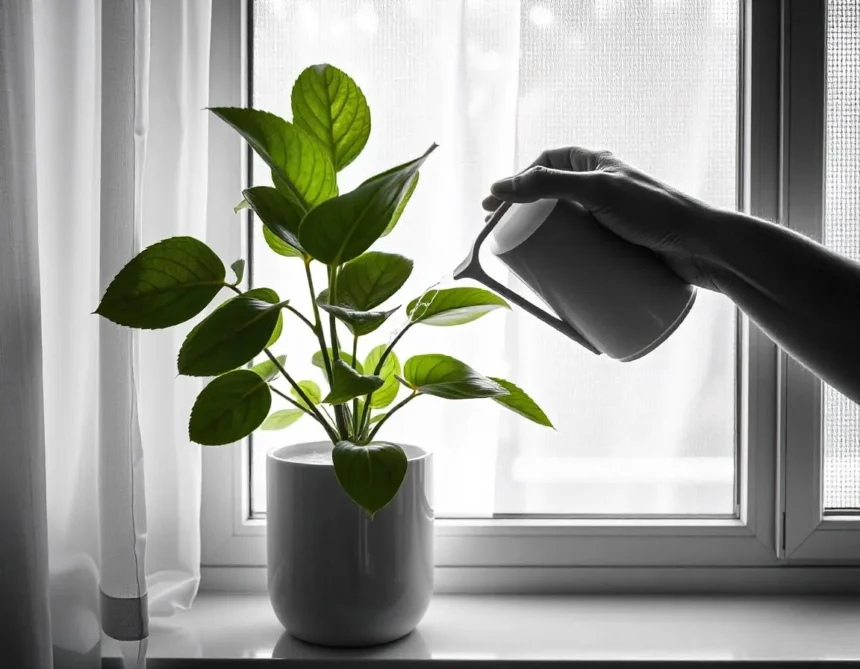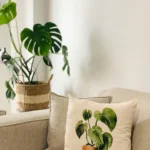Indoor plants add life and color to any room, but they require regular maintenance to stay healthy. Among the most important factors in plant care is properly watering your green friends. This is where the indoor plant waterer comes in-a very important invention for all plant lovers, whether a beginner or an expert. This in-depth guide will look at indoor plant waterers-from their benefits and the best on the market to how to choose which one is for your green thumb goals.
Why You Need an Indoor Plant Waterer
Watering indoor plants is quite an art: too much water and you run the risk of root rot, too little and you have wilted, unhappy plants. It is in this balance that an indoor plant waterer can be your best ally. These devices will make sure your greenery thrives by delivering just the right amount of water, sans guesswork. Here are some key benefits:
- Consistency: A good indoor plant waterer keeps to the watering schedule.
- Convenience: Ideal for busy lifestyles or frequent travelers.
- Improved Plant Health: No more of the two most common plant care mistakes: overwatering and underwatering.
- Customization: Tailor the watering schedule and amount to each plant’s specific needs.
Whether it’s a single fiddle-leaf fig or a variety of succulents, an indoor plant waterer will make your life easier and keep your plants happy.
Types of Indoor Plant Waterers
Not all indoor plant waterers are created equal. Each type offers unique features to cater to different plants and lifestyles. Here are the most popular options:
1. Self-Watering Pots
Self-watering pots have a reservoir at the bottom that plants can draw up water from when they need it. They’re perfect for beginners and plants that like consistently moist soil, such as peace lilies and calatheas.
Benefits:
- Reduces the risk of overwatering.
- Ideal for plants that require constant moisture.
Drawbacks:
- Unsuitable for plants that require dry environments, such as cacti and succulents.
2. Automatic Drip Systems
Automatic drip irrigation systems are connected to a water source and distribute water via tubes directly to the plants. Automatic drip irrigation is suitable for large collections of plants or larger gardening structures.
Benefits:
- Adjustable for many plants
- Time and labour saver
Drawbacks:
- Requires set-up and some periodic maintenance.
3. Plant Watering Globes
Watering globes are designed to be aesthetically pleasing and simple. Made from glass or plastic, these globes slowly release water into the soil as it dries out.
Benefits:
- Easy to use and visually attractive
- Inexpensive and easy to find
Drawbacks:
- Have a limited water capacity.
- May overwater small plants
4. Smart Indoor Plant Waterers
Intelligent watering systems connect with smartphone devices and allow scheduled and monitored watering from a screen. Some units will automatically adjust based on measured levels of humidity and soil moisture.
Benefits:
- Highly precise and effective
- Ideal for tech-savvy plant parents
Drawbacks:
- Higher up-front cost.
5. DIY Indoor Plant Watering Systems
For the crafty plant enthusiast, DIY systems like wicking cords or inverted water bottles can be an inexpensive solution.
Benefits:
- Budget-friendly
- Customizable for specific needs
Drawbacks:
- Requires effort to set up
- Less reliable than commercial options.
How to Choose the Best Indoor Plant Waterer
The best indoor plant waterer, however, rests on your plants’ needs, your way of life, and your financial capacity. Key considerations include the following:
1. Plant Type
Different plants require different watering regimens. For instance:
- Moisture lovers, like ferns and peace lilies: These do well in self-watering pots or with smart waterers.
- Dry-soil plants such as succulents and cacti: Avoid overwatering with options like watering globes or manual mechanisms.
2. Size of Your Plant Collection
A larger collection may require an automatic drip system, while a few plants might get by with self-watering pots or globes.
3. Frequency of Travel
Those who travel extensively should consider automatic systems or self-watering pots that can tend to their plants in their absence.
4. Aesthetics and Design
Indoor plant waterers come in various styles, from sleek modern designs to rustic DIY solutions. Choose one that complements your space.
5. Budget
Smart waterers have great features, but DIY systems and simple self-watering pots are affordable solutions.
Best Practices for Using an Indoor Plant Waterer
Success with the r plant waterer involves their proper use. For the best returns with your gadget, follow these handy tips:
1. Check Soil Moisture Regularly
Even with a waterer, make sure that the soil of your plants still receives the appropriate amount of water.
2. Clean Your Waterer
Prevent buildups and clogs by cleaning your gadget every once in a while.
3. Adjust for Seasonal Changes
Plants typically require less water during the cooler months and more during growth periods. Adjust your waterer accordingly.
4. Use Quality Water
Tap water containing high amounts of chlorine or minerals can burn your plants. Consider filtered, distilled, or rainwater.
5. Pair with Proper Drainage
Use pots with drainage holes to prevent waterlogged potting mix and root rot.
Top Indoor Plant Waterers to Consider
To get you started, here are some of the best indoor plant waterers on the market right now:
- Lechuza Self-Watering Planter: Sleek design , performs well.
- Blumat Automatic Drip System: Ideal for large collections.
- Aqua Globes: Super aesthetically pleasing and function well.
- Xiaomi Smart Flower Monitor: High-tech solution for precision watering.
- DIY Wick System: Budget-friendly and customizable.
Conclusion: A Greener, Happier Home
It’s more than just a tool; it’s a companion to take care of indoor plants. With the right waterer and best practices, you are like a pro who gets to enjoy a lush indoor garden with ease. Ready to transform your plant care routine? It is time to explore the world of indoor plant waterers today!








